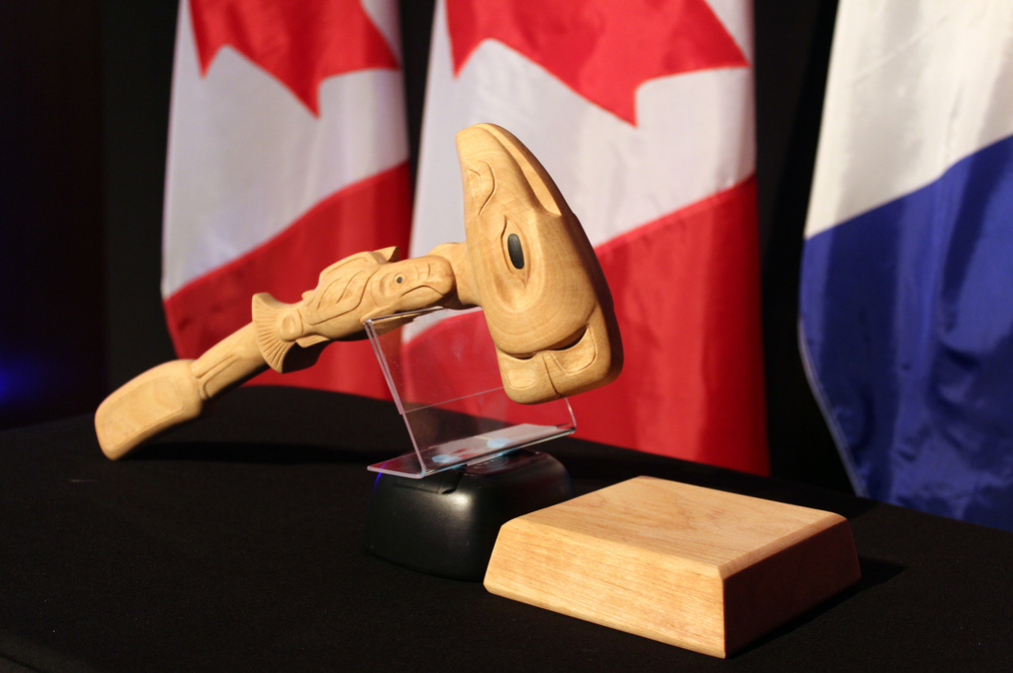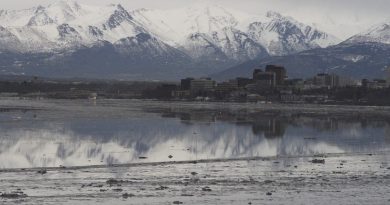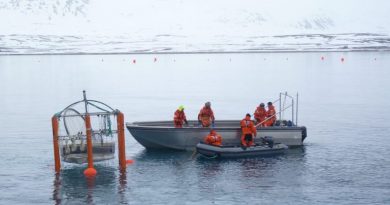Arctic Council meeting gets underway in Portland, Maine – Why some experts say we should be paying more attention

PORTLAND, Me. – Pollution, climate resilience and scientific cooperation are just some of the issues the Arctic Council began digging into on Wednesday, as its Senior Arctic Officials meeting got underway in Portland, Maine.
The two-day meeting has brought together representatives of the eight Arctic countries and the six indigenous organizations that make up the international forum.
The Maine Arctic Council Host Committee says 250 people were expected.
“(Senior Arctic Official) meetings have been critical to the collective management and decision-making of the Arctic Council, and I expect that the meeting in Portland, Maine will contribute to the continued success and progress of the Council,” U.S. Ambassador David Balton, current Chair of the Senior Arctic Officials, said in a news release prior to the gathering.
Arctic Council – Quick Facts
Year formed: 1996
Arctic Council Members: Canada, Denmark (Greenland), Finland, Iceland, Norway, Sweden, Russia, United States
Permanent Participants: Aleut International Association, Arctic Athabaskan Council, Gwich’in Council International, Inuit Circumpolar Council, Russian Association of Indigenous Peoples of the North, Saami Council
Current Chair: United States (2015-2017)
Next Chair: Finland (2017-2019)
Environmental challenges for the Arctic
The Arctic Council has Senior Arctic Officials meetings twice a year.
During the gatherings, the Council discusses its ongoing projects and future planning for the forum.
The bread-and-butter work of the forum is done by working groups made up of experts and scientists.
This week’s meeting is closed to the public, but the Council will talk to media on Friday.
Some of the closely watched agenda items this week include updates on work being done around black carbon and methane in the Arctic, and oil pollution prevention and response.
‘Golden age of Arctic diplomacy’
Council meetings like the one being held this week often fly under the radar for all except those who closely follow Arctic affairs and governance.
But the Portland meeting has stood out for several reasons. It comes on the heels of the forum’s 20th anniversary in September, prompting much analysis on the evolution of the forum and how it’s positioning itself to take on future challenges.
It’s also the first time Arctic Council chair, the United States, has held such a meeting outside of Alaska.
Over the last several years, Maine has aggressively marketed itself both politically and economically as the country’s second Arctic state.
The U.S. decision to hold the current meeting in Portland is seen by some as sending a strong message about Maine’s position as a northern player.
Many northern experts say the decision was also a good way for the United States, who currently holds the Arctic Council’s two-year rotating chairmanship, to raise the profile of the forum’s work in states outside of Alaska.
“We’re in a golden age of diplomacy when it comes to the Arctic,” Ben Ford, a Portland attorney at law firm Verrill Dana who specializes in maritime issues, told Eye on the Arctic at a symposium titled Marine Technology and the North at the Portland Museum of Art on Wednesday.
“I’d love for people who don’t usually follow Arctic development to look into what the Arctic Council does and to really understand what a constructive process is going on this week.”
Arctic Council & the ‘new’ North
Many experts say the Arctic Council will become an increasingly important tool for people living in the North as they navigate a changing environment and increased international interest in their region.
“Glacial progress had been made on things like education, health, housing and suicide rates in Inuit communities in Canada’s Arctic and in many cases things are getting worse with time, not better,” said Ed Struzik, Director of the Canadian Arctic Resources Committee, a fellow at the School of Policy Studies at Queen’s University in Kingston, Ontario; and the author of “Future Arctic. ”
“The Arctic Council can be a powerful voice for indigenous people to muster circumpolar support for the things that are important to them and to learn from each other. ”
Struzik was in Portland this week to give a talk on Tuesday at the University of Southern Maine’s Portland camps about Arctic challenges and opportunities.
The next years will be crucial for the forum, he said, and big changes need to be made so it can confront the increasingly complex challenges ahead.
“A new Arctic is unfolding and we don’t have a road-map,” Struzik told Eye on the Arctic. “It’s beholden on us to find a way forward on this. The Arctic Council isn’t the only thing that’s going to help us do it, but it’s going to play an important role.
“Unless we have a powerful, empowered force like Arctic Council, we’ll just be flailing around, throwing good money after bad money, at bad decisions.
“The Arctic Council isn’t there yet though. (U.S Special Representative for the Arctic) Admiral Robert Papp once said the forum needed to be put “on steroids” and he’s right. We need to empower the organization so it can be much more effective in pursuing each country’s priorities in the Arctic.”
Write to Eilís Quinn at eilis.quinn(at)cbc.ca
Related stories from around the North:
Canada: The Arctic Council at 20 – View from Canada, Eye on the Arctic
Finland: The Arctic Council at 20 – View from Finland, Eye on the Arctic
Iceland: The Arctic Council at 20 – View from Iceland, Eye on the Arctic
Norway: Arctic Council aims to boost business, The Independent Barents Observer
Russia: Russia invites Arctic Council on icebreaker tour, The Independent Barents Observer
Sweden: Arctic Council – From looking out to looking in, Blog by Mia Bennett, Cryopolitics
United States: Arctic Council – 20 years in a warming world, Deutsche Welle’s Iceblogger



